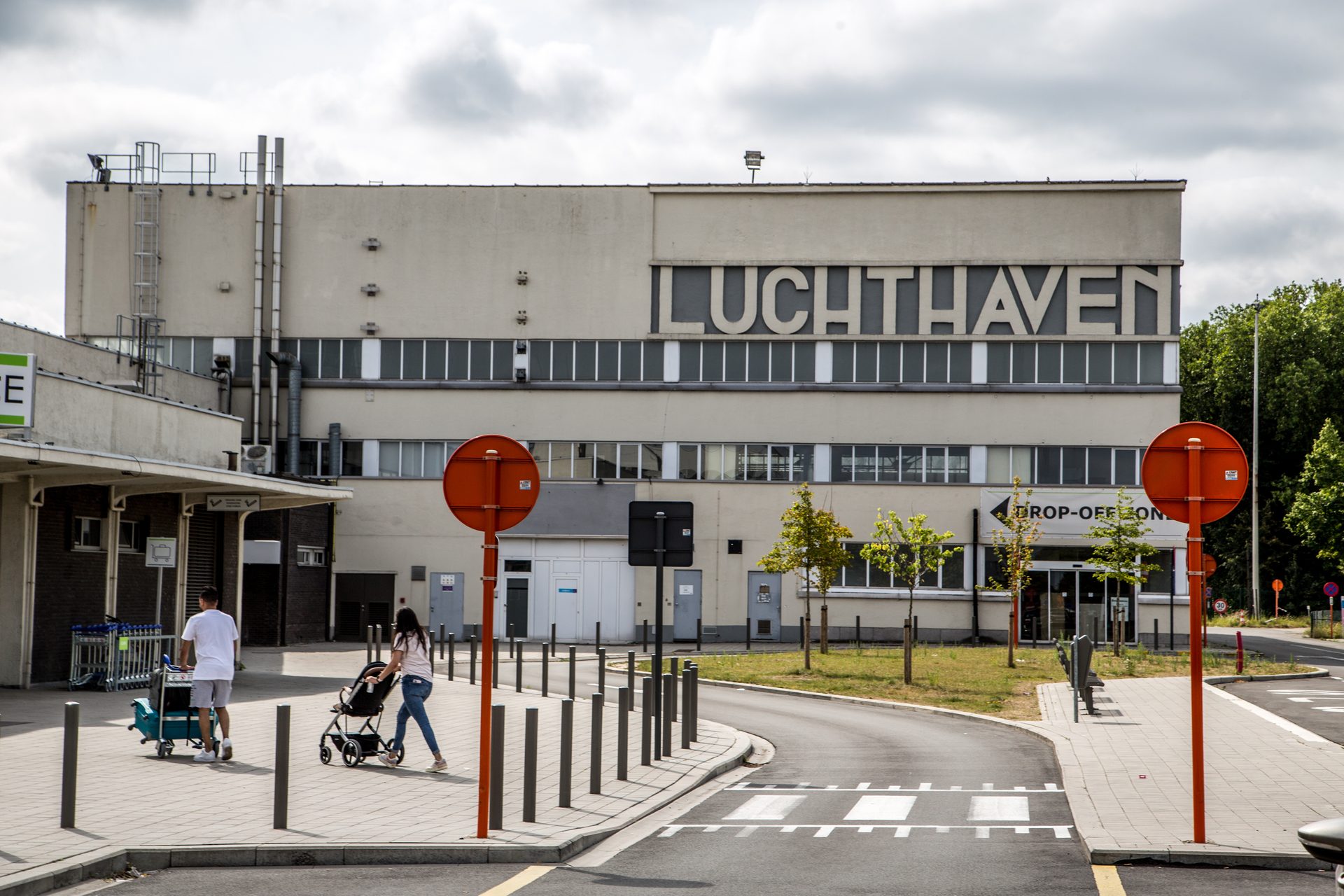Deurne airport in Antwerp has come under severe criticism following revelations that the majority of flights to and from the airport are connecting to Belgian destinations.
72% of all flight movements registered at the Flemish regional airport in 2022 were domestic flights, figures requested by the Green party Groen show. For 80% of these, Deurne was both the departure and destination point. Most other flights connect to another Belgian airport – distances that would take little time by train.
"More than 30,000 times, the same plane took off and landed again in our little country. Belgium is tiny. It's insane that you would fly a plane from Antwerp to Brussels, Charleroi or Ostend or just fly a round trip over Antwerp for fun," said Groen's co-chair Nadia Naji.
However the trend for domestic flights is continuing this year, with initial figures for January to May showing that 14,699 domestic flight movements were already counted at Deurne Airport. In light of these figures, Naji argues that the airport is redundant, in fact not serving neighbouring countries as is often claimed.
Unnecessary spending
The Green party has highlighted the significant government support that the airport receives, without which it would likely have been bankrupt long ago. "It is completely irrational that the Flemish government is pumping millions of euros of taxpayers' money into a loss-making, redundant airport. The Flemish government is letting our tax money fly through the air. Literally."
The party is pushing for the Flemish Government to put a stop to the subsidies, arguing this would generate almost €40 million.

The entrance of the Antwerp regional airport in Deurn. Credit: Belga/ Robbe Vandegehuchte
"With that money, we could give the airport a new purpose that all Antwerp residents would enjoy instead of it serving mainly as a private airport for a select few." Citing Berlin's decommissioned Tempelhof airport, the party says that a similar large park could be created.
Already Mobility Minister Georges Gilkinet (of French-speaking green party Ecolo) has called for a ban on domestic flights to tackle air pollution. These were echoed by Naji: "Parts of Europe are literally on fire this summer because of climate disruption. If we want to tackle the climate crisis, it is necessary to reduce CO2 emissions. An immediate ban on domestic flights is a no-brainer for us."
Training purposes
Airport managers have responded to criticism by saying that many of the domestic flights are by individuals who own small private aircraft, which "can be compared to someone going for a ride with a vintage car." Others they say are inspection flights, while others are so-called positioning flights "where an aircraft has to go for maintenance or to pick someone up like a taxi".
But most of the flights that depart and arrive at the site are part of pilot training courses, which managers stress are "definitely not a waste", instead saying that these are essential to provide the pilots of the future. "There are half a dozen pilot schools in Antwerp and we have the necessary equipment such as navigation systems and simulators to train them," they noted in a statement.
Related News
- Ryanair pilots at Charleroi Airport to strike on 14 and 15 August
- Low-cost airlines more popular since Covid-19 pandemic
Aviation economist Wouter Dewulf (UAntwerpen) told Belga News Agency that the training flights are done without passengers and in planes with propellers that pollute much less than commercial airliners. He went on to say that most of the non-training flights that do carry passengers in Deurne are indeed international flights, such as those operated by tour operator TUI.
However, Dewulf admitted that it would be possible to organise training elsewhere, as Groen suggests, such as in Ursel, Brasschaat, Leopoldsburg or Sint-Truiden. But at these sites too there are costs and besides, "a pilot has to learn to land at an international airport like Deurne with a guarded tower and a landing system."

